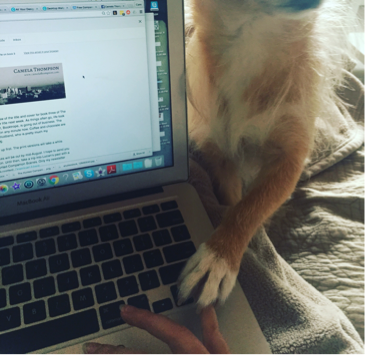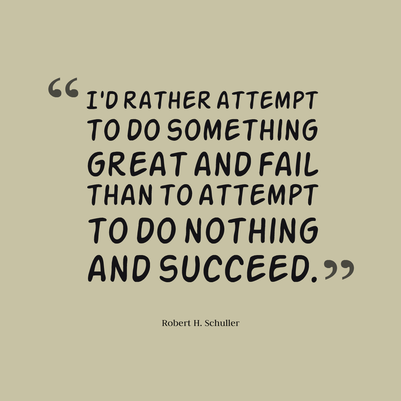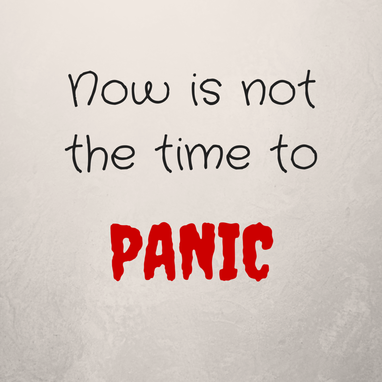|
by Camela Thompson When my publisher announced they were going out of business, my first response was panic. The fear stemmed from the unknown learning curve I faced, not the rush to find another publishing house. I had been debating whether or not to move over to self-publishing, and the end of Booktrope gave me the nudge I needed. My day job as an analyst involves a lot of focus on planning for the future, but this time I had no idea what to expect. Patricia D. Eddy is my editor and a life saver. She talked me off the ledge a few times and reassured me by giving me simple next steps. I signed up for a state and city business license, negotiated terms on the creative contract with my team, and then set about deciding what to do with my books. I didn't want to lose momentum I had gained from a sale back in March, but I had no idea what I needed in order to get my books up on the major platforms. Publish as is or make updates? Knowing I had a month to get the new versions prepared gave me plenty of time to give the writing in All the Pretty Bones a facelift. I didn't change the storyline or characters, but I changed some of the language. Writing is a lot like playing an instrument or painting. No matter how long you practice and perform, there will always be something that can be learned and improved upon. All of this work didn't go over well with my assistant. Which formats?
Layout seemed like a black art to me. I've done graphic design in the past, so cover design doesn't intimidate me as much as interior layout. The thought of learning multiple programs to format for ebook and print seemed daunting. There's also the matter of sales volume. Around 99.9% of my sales volume comes from ebooks. I'd like to make the print version available eventually, but I'm not feeling a lot of pressure to do so in the immediate future. Which platforms? A self-published friend recommended I forgo publishing for the Nook. After reviewing sales, I decided to move forward with establishing an account with Nook Press and questioned signing up with iBooks. In the end, I signed up for the following:
How the heck do you edit layouts? Like I mentioned, this started as a complete mystery and fueled my one freak out evening. Which is ridiculous now that I've worked with Vellum. It's awesome. If you have a Mac, I wouldn't recommend anything else. I can format a book in under an hour, which is freaking fantastic. Like I mentioned, prepping the print version hasn't been a priority, but I'm told I'll need InDesign and a lot of whiskey. Where does this leave me? I'm pleased that my books will be offline for a minimal amount of time. My files are uploaded and ready to go. Now I can focus on wrapping up the final proofs for book three and start writing again. It has been strange to not have the chance to write. I can't describe how much I'm looking forward to falling back into a routine.
4 Comments
A lot of my author friends post coffee memes. Tons of coffee memes. I'm from Seattle and thought I could relate, but now I get it. The only times I surfaced this weekend involved an author collaboration meeting (which was awesome) and walks to the coffee stand. I must have looked like one of the mole women emerging into sunlight. Squinting. Because I had no fricken' clue the sun had made an appearance. My books go offline on June 1st, and I'm not ready. My list is long and missing check marks. My blog posts are going to be very short until I get my books back online. Priorities, right? When I get frantic, I stare at my screenshot from the Bookbub for All the Pretty Bones. It's a beautiful thing, and I didn't catch the high point. It's not bragging if it's a coping mechanism. Just kidding. It's a brag. I'm proud of my book, and I'm not giving up. Until my books are ready, my weekends and evenings are booked. When this is over, I'm binging on HBO.
by Camela Thompson As I mentioned last week, my publisher is going out of business. It's a struggle to adapt to the changes the marketplace has faced in the last several years. I know other authors will be or already have been in my position. There are a lot of options for us after we are given back our rights. I'm not sure there is a single correct path. The only wrong answer is to give up. Contractual Obligations
Before you begin the quest for your book's next life, review your contract for any ongoing obligations and determine when/how creative rights are returned. A contract lawyer can help walk you through the details and draw up any necessary paperwork. In my case, my hybrid publisher used a creative contract and split royalties to compensate team members over five years. If the author or publisher wanted out of the agreement, the author inherited responsibility for compensating team members for the duration of the agreement. This means teams can attempt to agree to a flat rate, a new publisher can pay off the team members, or the author can continue royalty distribution (the author can form a business that allows 1099 contract work for royalties or find a similar publisher that is willing to carry the torch). Which Publishing Model Next? Moving from one publisher to another isn't simple, especially when your sights are on a large traditional publisher. If you have a book that has hundreds of reviews, consistent sales, and can boast about impressive social media stats; you're in great shape. In fact, interested parties probably emailed you when official news of the publisher going belly up hit the wire. If you have multiple books with mediocre or even good stats, it's going to be more difficult. If you're just starting out, you may need to accept that what one publisher deemed acceptable may not appeal to another. It may take a different twist in your genre or another year of writing experience and a new book. Fortunately, our creative rights are being returned promptly. Many of the Booktrope authors had previous experience with self-publishing. Some publishers with similar models stepped forward and offered to take complete teams (and distribute royalties) for approved books. Others are taking time to send query letters, pitch in person, and evaluate next steps. A few have decided to throw in the towel. Hopefully temporarily. What Did I Decide? Self-publishing makes sense to me. I'm accustomed to operating in a business environment, and I believe I have the maturity to stay motivated and on task. My one worry is my ability to market (it's not my strong suit!), but this is something I'll have to learn anywhere. I've got my business licenses, negotiated rates, have a marketing plan for relaunch, and am ready to dig in to learn what there is to know about ISBN options and layout programs. I used to do graphic design and I'll get there. Self-publishers who are dedicated to producing a high-quality product blend in with the traditional market. I'm determined to meet a high bar. I've been warned that I'm shooting myself in the foot and traditional publishers will shy away from me. This may be true. But it might not. The market is changing. If I work hard, I'll build momentum. I'll keep learning, work at a rate that's sustainable with a day job, and ask for help when I need it. What's important is that I know I can't give up. Resilience is the key to survival. When faced with major change, you alone have the power to choose whether to give up or keep fighting. by Camela Thompson I took a break from my day job on Friday to check my personal e-mail. I had a suspicion the note from my publisher wasn't good news, but Booktrope's announcement still came a shock. They are going out of business and nearly all books (mine most definitely included) will no longer be available for sale as of May 31st. My first reaction? Disappointment. Then I texted everyone I know and scoped out Facebook. Not everyone took the news well. I vented a bit in private, but ultimately life as an author is not for the faint of heart. I'd like to point out that this is a very difficult time to be in the industry as a publisher. The ease of self publishing and sheer volumes of titles per year have made it critical to hang on to proven authors and shy away from the risk of new talent. Success as an author is greatly determined by perseverance. I know many very talented authors who have given up after years of rejection where others succeeded because they moved on and kept trying. It didn't take long after receiving that ominous email to realize that it was time to roll up my shirt sleeves and make the most of what has happened. Booktrope had a unique approach to publishing. They screened incoming novels then stepped back and allowed their authors to negotiate and develop their own teams. From start to finish, Booktrope provided little interference, allowing the team members to work together and decide on the final product. Team members received compensation over time from royalties. The driver to success had to be the quality of the product put out by the team.
I don't know what drove the decision to close shop, but I could see a few flaws with their approach. Leaving a team alone to produce a product doesn't always work out. Sometimes there needs to be a bad guy who holds a person accountable for not doing their share (fortunately, my teams were wonderful). The biggest issue had to do with the compensation model for the team members who were not authors. Productivity, or enough sales to generate sustainable revenue, has a very slow ramp in this industry. This penalized creative team members who agreed to work with new authors. The adage is that an author will experience consistent sales after five quality books are published, but this takes time. It could be years for team members to see a profit, and sometimes good books fail. They couldn't make a living while they waited for sales to ramp. When you decide to self publish, you assume liability. You choose how much time and money to invest. Your decisions ultimately determine success. Traditional publishers assume a lot of risk by paying the editors, copy editors, cover designers, marketers, and distributors up front. They must be picky about who they accept if they have a chance at succeeding. The wonderful thing about Booktrope was that the risk no longer fell squarely on the author or the publisher. Unfortunately, this meant that those of us who were new, niche, or non-compliant dragged others down. As someone averaging one book per year, I felt guilty that I didn't write more, market more, sell more. I've met the people who were at the heart of Booktrope, and they cared deeply. They wanted us all to succeed and they had an innovative approach. They gave me my first break as an author, and I've learned so much. I'm thankful for all of the connections I've developed because of Booktrope. I have no complaints and regret that things didn't work out. I'm responsible for negotiating with my creative team members to come to an agreement on compensation for their contribution if I wish to use their work. Because the majority of my team members preferred up front compensation, my out of pocket expenses and the short amount of time to turn a product around make self-publishing the most logical choice. There was a bit of pride in having a publisher. Someone chose my work and gave it a stamp of approval. The longer I write, the less I need the added pat on the back, but I'd be lying if I said it didn't sting a little. That said, I'm in a better place than most because of the connections I've made through Booktrope. I'll have help from people I respect. I'll do my best to get All the Pretty Bones and Blood, Spirit & Bone back online as quickly as possible because I don't want to lose the momentum I've worked so hard for. It's going to be a bumpy road, but as I joked to my editor, this was the kick in the pants I needed. It's time to note the lessons from this chapter and move on. Camela spends her days as an operations analyst looking for potential pitfalls and creating efficiencies, driving results with the numbers to prove that change is worth the discomfort. She realized early on that a company's success is entirely dependent on people. Product and planning mean little without proper execution. In the evenings she writes about things that go bump in the night with her adorable terrier mix by her side. |
Camela ThompsonFreelance writer and Dark urban fantasy author featuring vampires with bite. My BooksCategories
All
Archives
July 2020
|




 RSS Feed
RSS Feed